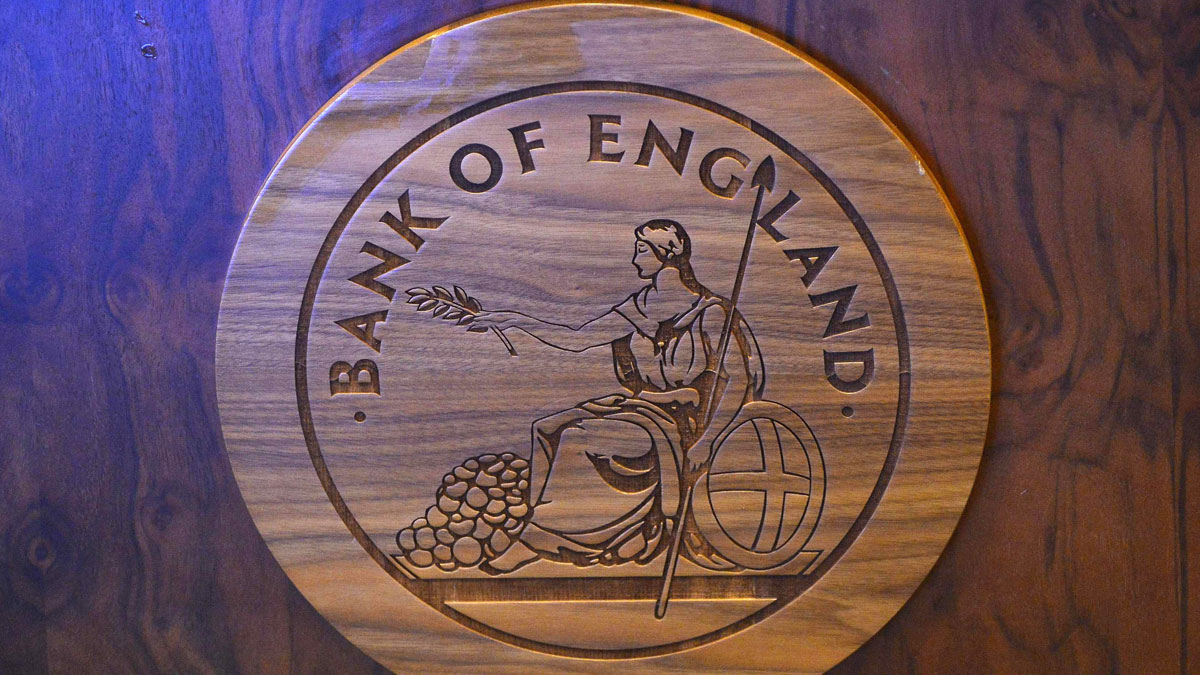Interest rates, inflation and the wider economy
Consumer prices are surging and wages are in decline – so why isn't the Bank of England moving?

A free daily email with the biggest news stories of the day – and the best features from TheWeek.com
You are now subscribed
Your newsletter sign-up was successful
Yesterday the Bank of England came the closest it has come in the past six years to raising interest rates when three members of its Monetary Policy Committee (MPC) voted in favour of increasing borrowing costs.
But the vote was still strongly against a shift in policy. With the most consistent rates hawk on the committee due to leave after this month's meeting, analysts reckon rates are going nowhere fast.
Ongoing delays in normalising rates might appear odd, given that consumer prices are surging and real wages are now firmly in decline. If rates are the mechanism to deal with increasing inflation, why isn't the Bank of England doing anything?
The Week
Escape your echo chamber. Get the facts behind the news, plus analysis from multiple perspectives.

Sign up for The Week's Free Newsletters
From our morning news briefing to a weekly Good News Newsletter, get the best of The Week delivered directly to your inbox.
From our morning news briefing to a weekly Good News Newsletter, get the best of The Week delivered directly to your inbox.
Interest rates Vs inflation
The link between interest rates and inflation is enshrined in the central bank's independent monetary policy remit, which demands that it sets rates in order to keep inflation at a target of two per cent.
At a basic level the base interest rate set by the Bank of England defines how expensive it is to borrow money from private banks and increases costs like mortgages, so raising rates should in theory suppress demand. It also boosts the rate of interest on savings, thereby encouraging people to defer making purchases to a later date.
In contrast, keeping rates low should stimulate demand.
A free daily email with the biggest news stories of the day – and the best features from TheWeek.com
Normally it's considered bad for an economy if prices and money supply stagnate, so a consistent and low level of inflation is ideal.
Central banks tend to try and look through short-term price moves, however, in order to avoid destabilising markets and the economy with frequent shifts in the cost of borrowing.
Interest rates Vs the economy
While the Bank of England is tasked with keeping inflation in check, it does so with one eye on the wider economy.
Demand is absolutely key to economic prosperity, especially in a country like the UK which relies heavily on the services sector and therefore on consumer spending.
So when the economy isn't doing very well there's a broader case for cutting rates to low levels to stimulate economic activity. This was the policy response in the wake of the global financial crisis.
Once rates are low, central banks are cautious about raising them again until they are sure a recovery has taken hold, as they don't want to cut off the very source of improving prospects.
Interest rates Vs markets
Some experts believe, however, that as ultra-low interest rates have persisted for a long time they are distorting markets and hurting ordinary people.
Alistair Heath of the Daily Telegraph says, for example, that by making borrowing cheaper low rates have boosted borrowing at a time when the country needs to save more. Family debt is now close to pre-financial crisis levels.
Low rates also produce asset bubbles, increasing the relative attraction of things like stock market shares and housing, which produce a far greater return than cash or safer bonds.
That's partly why stock markets keep setting new records despite mixed economic fortunes. It's also one of the reasons why house prices are more unaffordable than ever.
Then there are pension funds, which make returns primarily from safe investments like government bonds. They are facing big funding black holes and this means companies are having to spend more of their profits on pensions.
Space capacity
In short, running low interest rates is not something a central bank should do forever. But timing is everything.
This is where a deeper look at the economic numbers reveals what's really going on under the bonnet of the economy.
In the UK, unemployment is very low – in fact it's the lowest it's been for 41 years. But wage rises are sluggish and lagging behind inflation, which means people are earning less in real terms. Economic growth is also slowing down.
This suggests the economy has lots of what's known as "spare capacity" and that productivity is low, which probably means the high level of inflation at the moment is transitory.
That's the view of most economists, who believe it simply reflects the fall in the value of the pound since the Brexit vote pushed up import prices.
It's all about timing
If inflation doesn't last, there's no need to raise rates quickly in response. Even under its government targets, the Bank of England is only obliged to return inflation to two per cent within a "reasonable time period".
In the meantime, it won't want to put households under more pressure by increasing the cost of their mortgages, say, while weaker spending could simply slow the wider economy further.
So while a few rate-setters see the value in a rates rise, most of them (and all five of the Bank of England's staffers on the panel) think now isn't the time. It may not be so for some time yet.